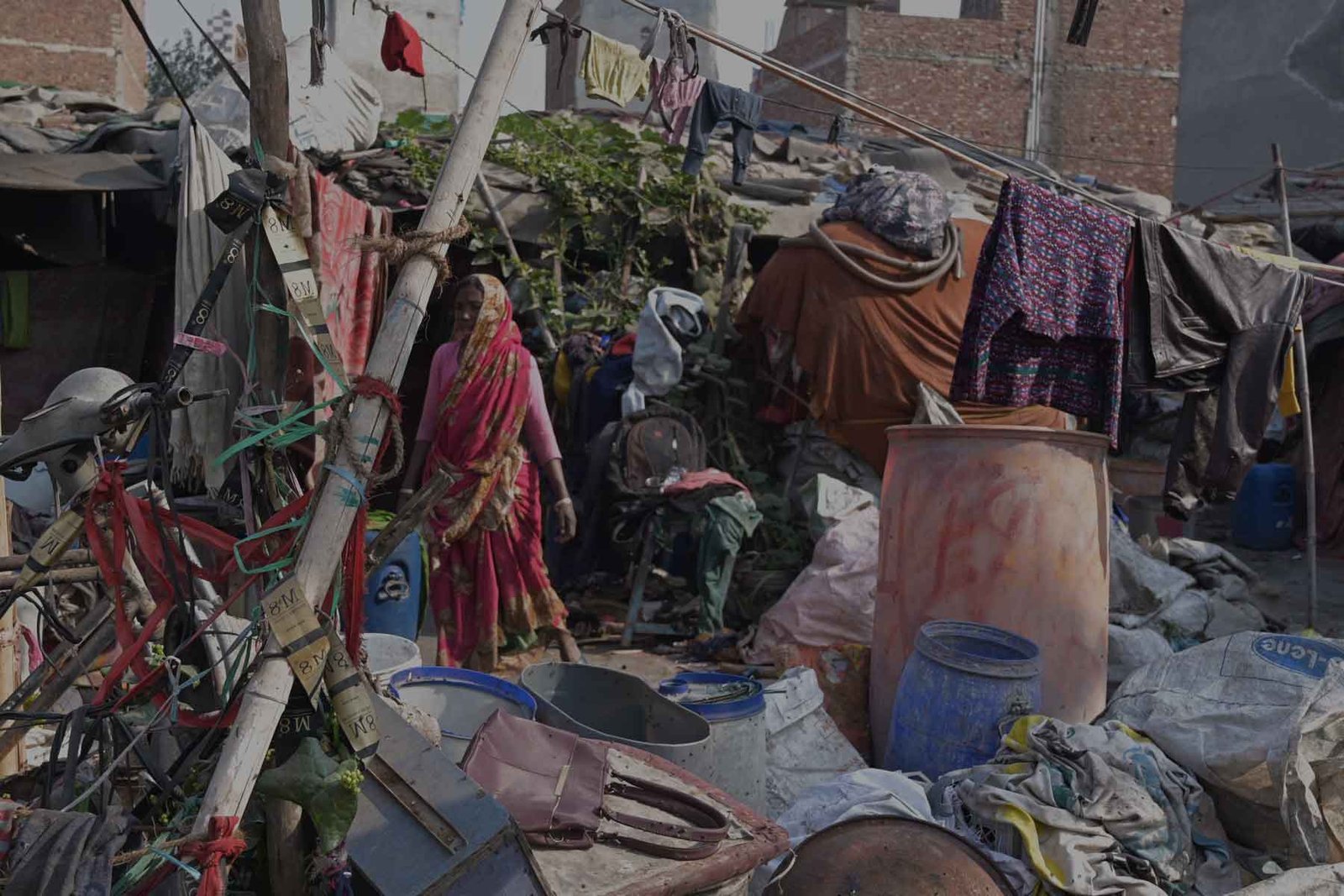
Land Title & Ownership
Introduction
SEWA Delhi’s Land Title and Ownership is a pilot project generating evidence about the methods that can be employed to improve awareness and access to infrastructure services, land tenure, and housing finance. The project works closely with informal economy women workers in informal settlements of Delhi, with a wide spectrum of informal land tenure statuses. Tenure security refers to the owner’s right to use, sell, rent, and mortgage property without any legal constraints, or risks associated with displacement and eviction. Insecure tenure also limits access to basic infrastructure services such as water, roads, electricity, drainage, etc, and access to formal housing finance. Put together, insecure tenure affects quality of life and discourages residents from improving and investing in their living conditions.
The project opportunities, barriers, and learnings achieved through SEWA’s work in strengthening tenure security for informal settlements in Delhi. As of now, the roadmap elaborates on 3 types of informal settlements – slums, unauthorized colonies, and resettlement colonies. SEWA Delhi shortlisted two informal settlements in Delhi: Nand Nagri, a resettlement colony and Bhalswa, an unauthorized colony in northeast and north districts of Delhi. These settlements are usually characterized by insecure tenure, inadequate urban infrastructure and lack of housing quality. This leads to challenges for women informal workers who end up managing both reproductive roles (taking care of children, cleaning and others) and productive roles (their paid work). These informal women workers face further challenges due to their informal land tenure status. Being out of the ambit of planned colonies, informal settlements lack basic urban infrastructure.
Further, lack of documentation due to the informal nature of their work and insecure tenure restricts informal women workers from access to formal finance. Insecure tenure also presents risk of eviction and demotivates households from investing in better living conditions. Thus, SEWA Delhi’s project on ‘Building women’s access to improved infrastructure and tenure’ works toward socially and economically empowering informal women workers by eliminating barriers to accessing tenure security, adequate infrastructure services, and formal finance.
Insight & Strategy
The aim of the project is to mobilize informal women workers through their collective agency enhanced by awareness programmes to enhance their capacities and awareness over land and financial assets in their households, communities and cities at large. The objectives of the project are:
- Develop awareness modules that allow residents to comprehend Delhi’s governance structure and seek service provisioning from respective governing bodies;
- Create mobilization strategies to aid women in the community to build a liaising platform with government bodies, service-provisioning agencies, elected representatives advocating for improved infrastructure provisioning, and strengthened tenure security;
- Educate women in financial and digital literacy and ways of seeking proper documentation, and lastly;
- Collaborate with Delhi Credit Cooperative (DCC) to provide formal housing finance loans to women living in informal settlements.
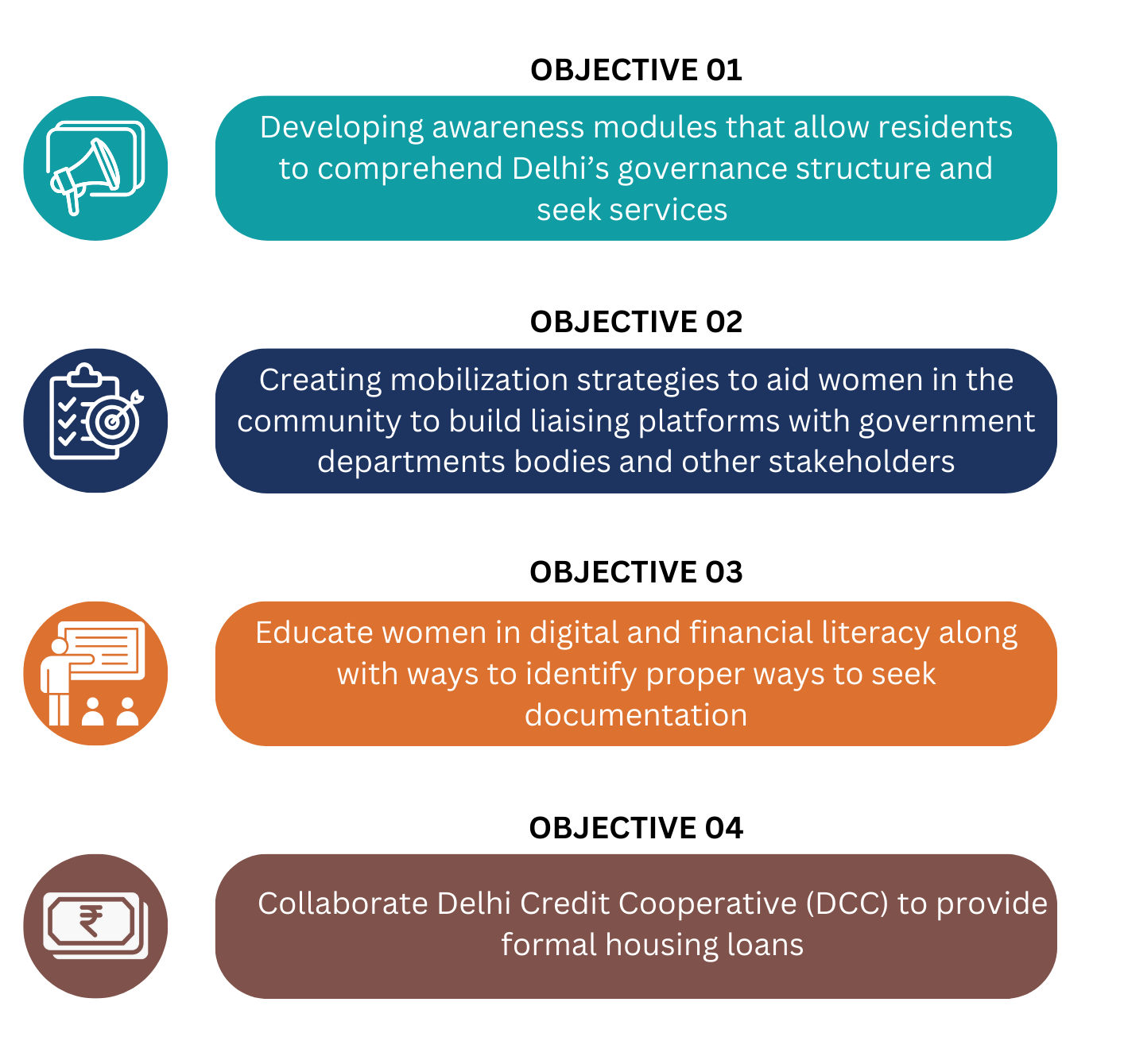
Challenges
- Being a new location, Bhalswa requires a notable amount of time to be build rapport and trust with residents. This especially takes time in settlements where residents are unfamiliar with the workings of SEWA in Delhi.
- As majority of the residents in the identified blocks of Bhalswa were found to be renters, it makes it difficult to involve them in housing schemes for unauthorized colonies.
- Lack of accountability among residents resulted in poor upkeep of the infrastructure.
Experiences of our Bens
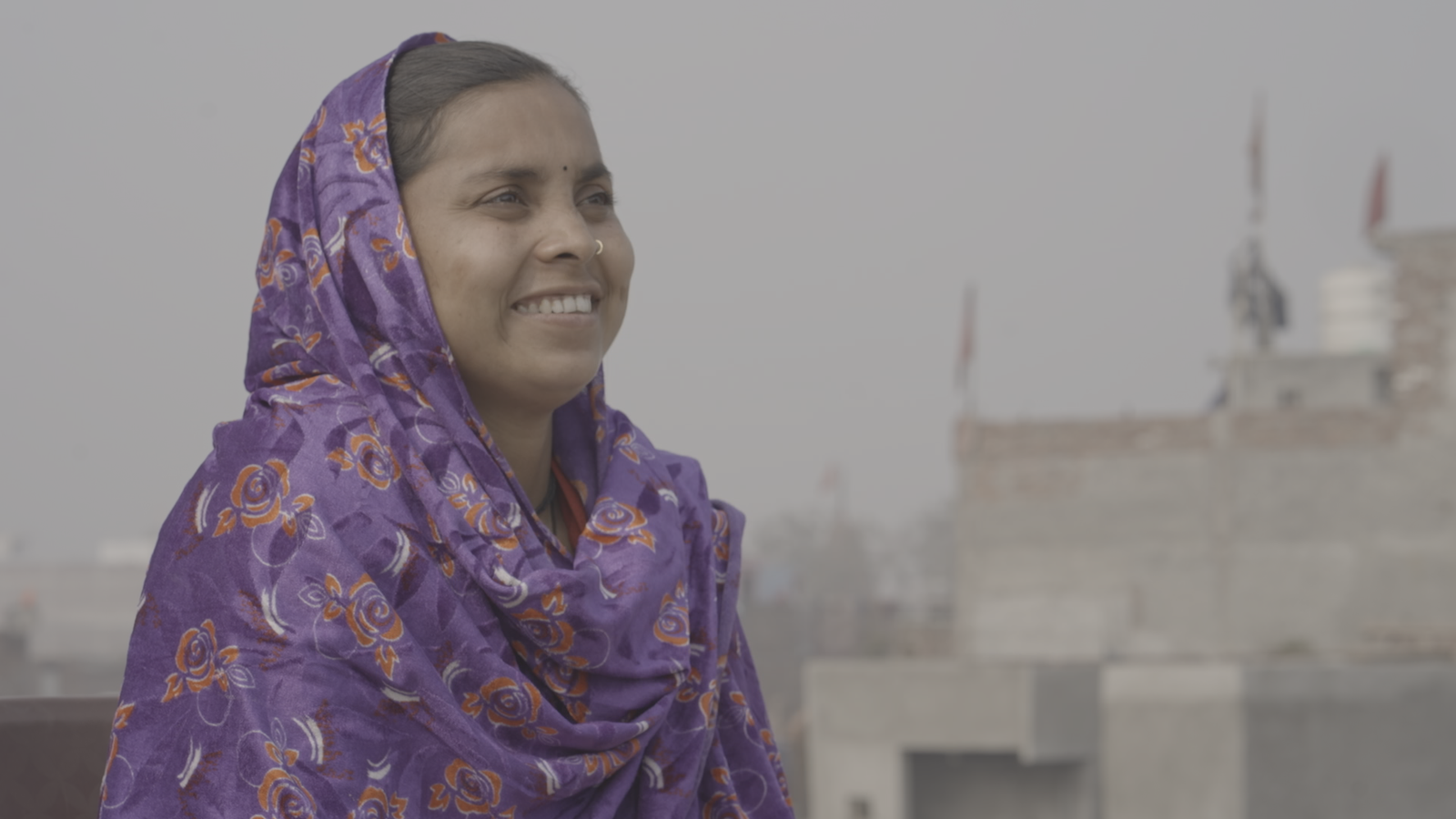
“ We suffered difficulties to access water. The water from the tap used to be brown and had unpleasant odour. We had to spend 1000 rupees per family per month to request water tankers and their availability was inconsistent. Now, as a PoC, I can call water tankers free of cost for myself and fellow waste recyclers bens.”
Sakhira Ben, A waste recycler in Bhalswa
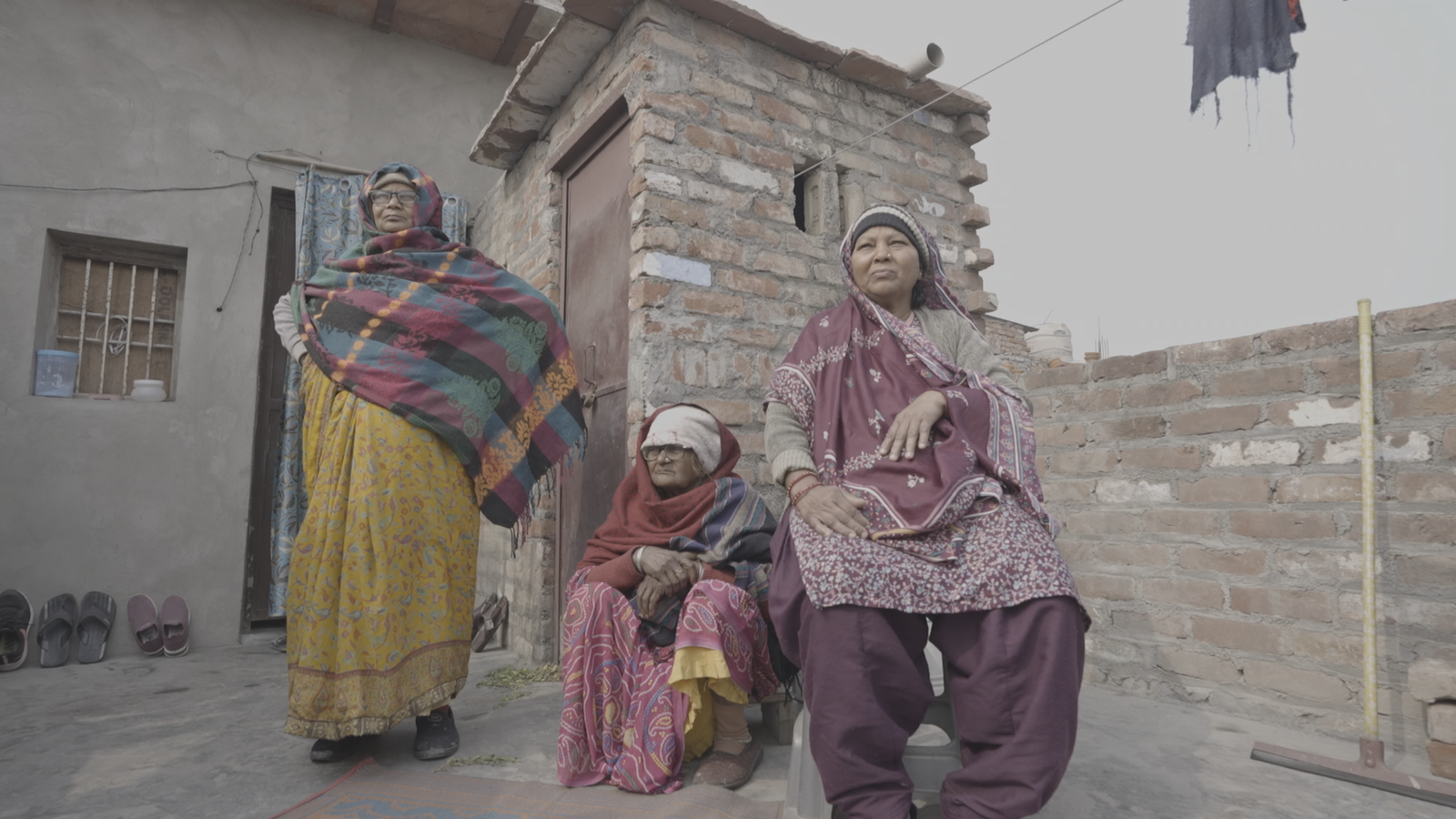
“Due to lack of streetlights, my mobility and work was affected. I couldn’t let my children go out and neither I was able to work outside on the street. After streetlights were repaired, my children could play outside and I was able to work for longer duration.”
Kiran ben, Home based worker in Bhalswa
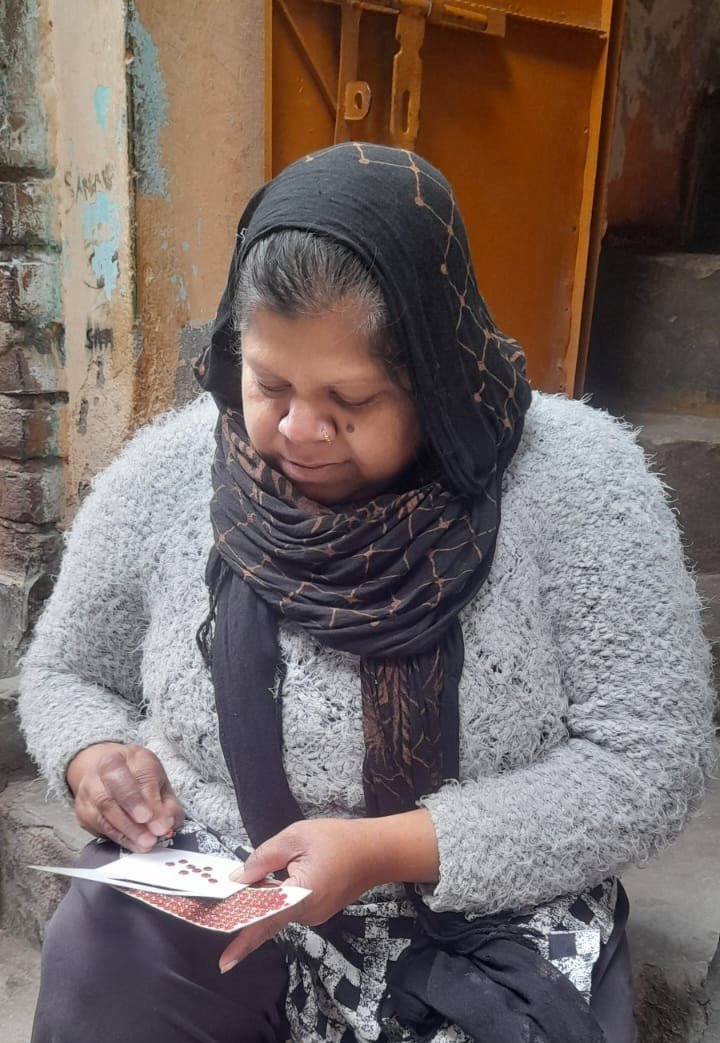
“Waste collection vehicles seldom came to our area, causing numerous challenges. We had to walk 15 minutes to dispose of our waste, leading to a daily compromise on my work hours and a loss of Rs 15/- to Rs 20/-. With the introduction of regular waste collection, I have experienced significant advantages. I no longer have to interrupt my work, and there is no fatigue from carrying garbage.”
Seema Ben, a home-based worker from Nand Nagri
Impact
- 25 community meetings happened in Bhalswa
- 24 community meetings happened in Nand Nagri
- 250 women reached through digital and financial literacy training
- 20 women given home loans through Delhi Credit Cooperative
- 5 major urban infrastructure challenges resolved in both the areas
- At least 2000 women reached for awareness programmes
